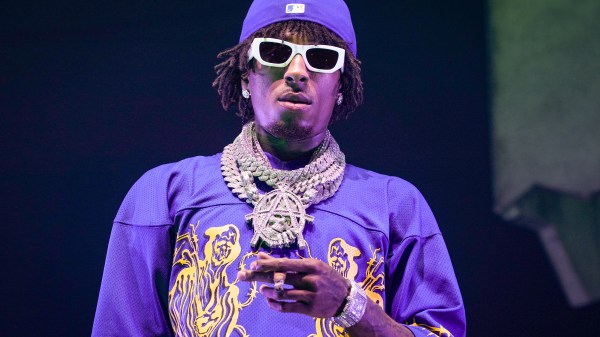Videos by According2HipHop
Kanye West said he’s terminating his two-year-old partnership with the Gap because of “substantial noncompliance.”
Ye lawyer Nicholas Gravante said in a statement Thursday that West was left with “no choice but to terminate their collaboration” because he alleges the retailer breached their partnership by not opening branded Yeezy stores and distributing his apparel as originally planned, among other issues.
“Gap’s substantial non-compliance with its contractual obligations has been costly,” wrote Gravante, who co-chairs the litigation group at Cadwalader, Wickersham, and Taft. “Ye will now promptly move forward to make up for lost time by opening Yeezy retail stores.”
Gap (GPS) didn’t immediately respond to a request for comment. Shares were down about 3% in early trading.
The partnership was announced in June 2020, immediately giving the beleaguered retailer a much-needed boost of relevance. For example, a $200 jacket designed by West was an immediate hit, but was only available online.
West also said that Gap was required to sell 40% of Yeezy Gap products in its retail stores, which hasn’t materialized, according to The Wall Street Journal.
The relationship soured in recent months. Ye criticized Gap for not listening to him. “You have to really give me the position to be Ye and let me do what I’m thinking, or I have to do the thinking somewhere else,” he said in a now-deleted post on Instagram.
Neil Saunders, managing director of GlobalData, wrote in a note that the breakup was “not entirely unexpected” and wouldn’t financially harm Gap’s bottom line.
“Gap is a cautious company with a stale brand that usually eschews bold moves. In contrast, Kanye is a radical innovator who loves to shake things up,” Saunders wrote. “While Kanye could have injected a dose of energy into Gap, the incompatibility of the two visions meant that frustrations were inevitable. In some ways, Kanye was just too extreme for Gap.”
West recently told Bloomberg that it was “time for me to go it alone,” adding that he would seek to “make the new industry” and no longer have companies “standing in between me and the audience.”























